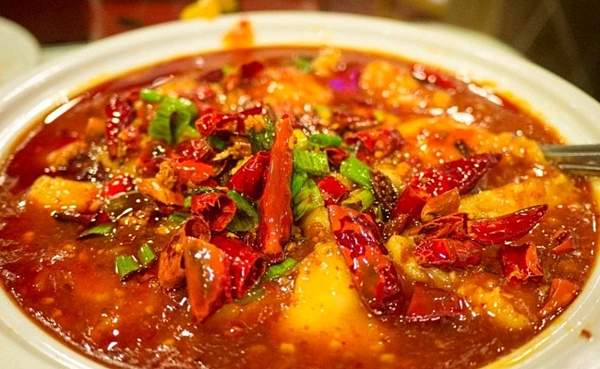Why do many people like to eat spicy food even though it is harmful?
Many people are sensitive to spicy taste, others eat spicy food from childhood and form this habit.
A 2017 survey by Dr. Kalsec found that up to 90% of Americans enjoy spicy food. Spicy foods are increasingly popular to meet consumer demand, but they can cause serious health problems.
When eating spicy food, heartburn occurs due to stomach acid refluxing into the food pipe, causing a burning sensation in the chest. Some types of hot peppers, curries... have a stronger effect. Many hot and spicy foods contain capsaicin compounds, which slow down the digestive process. Then, spicy foods stay in the stomach longer, stimulating saliva and gastric juice, increasing the risk of heartburn, causing discomfort. More dangerously, it can also cause gastritis.
To reduce the effects of capsaicin, you can drink milk, eat bread, butter, rice. In fact, any dairy dish combined with spicy food can cool the taste. Drinking water does not help to reduce the effect of spicy spices as many people think. On the contrary, it also spreads the chili molecules in the mouth.
 |
| Many dishes use chili as a spice. Photo: Steemit |
According to dermatologists in La Grange Park, spicy foods are also serious skin irritants. After eating spicy foods, your body temperature increases and stimulates sweat glands, causing your skin to produce more oil. Dirt and bacteria can easily stick to the oil on your skin, causing acne and even eczema.
Studies also show that spicy food causes bad breath. When you have heartburn, the food in your stomach flows back up into your esophagus, which can cause a bad smell coming from your mouth. In some cases, your vocal cords become inflamed, making you hoarse. Especially when you eat spicy food and then lie down to sleep, the acid in your stomach flows back up, burning the lining of your esophagus, making it difficult to sleep.
Some studies have found that spicy foods can curb appetite. For some people who want to lose weight, this can be an effective way. However, scientists do not advocate eating spicy foods every day, because it can make appetite loss a serious problem.
Around the world, there have been recorded cases of death from eating too much ghost pepper, the hottest pepper in the world.
Why do people like spicy food?
Despite all this, many people really like spicy food, and can tolerate it many times more than others. Dr. Maya Feller explains that everyone has different sensory perceptions. Eating foods with different levels of spiciness is based on individual taste buds. Some people are extremely sensitive to this taste. Some people tend to gradually increase the level of spiciness when eating spicy food.
Cultural influences also play an important role. Many people have the opportunity to access and enjoy spicy foods regularly from a young age, so they form the habit of eating spicy foods early. Research shows that the spicy taste index is formed from the womb, expressed by pregnant mothers eating spicy foods while pregnant and breastfeeding, thereby affecting young children and infants.

